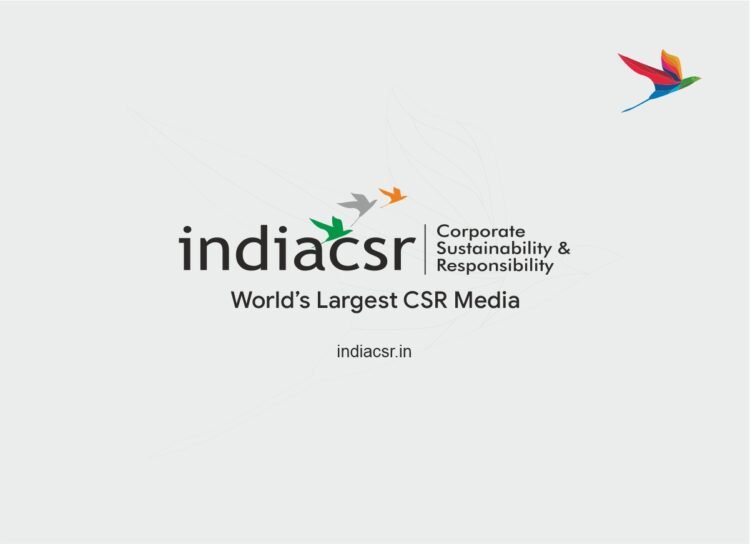Speech delivered to 17th World Congress on Environment Management
By Prof. Colin Coulson-Thomas
In a recent encyclical on climate change, the environment and inequality Pope Francis suggests our planet is ‘beginning to look more and more like an immense pile of filth.’ His indictment embraces rubbish, the throwaway culture, the impacts of pollutants and greenhouse gas emissions. His critique suggests that in relation to environmental governance, innovation and entrepreneurship we have more to do.
Litter and Affluence
Litter is not hard to find. Recently in Bangalore I left a smart home to walk past piles of garbage on any available space – a modern manifestation of the private affluence and public squalor that John Kenneth Galbraith identified in his book The Affluent Society. Will the problem get worse as more people become affluent?
Responsibility and Addressing Waste
Is accumulating rubbish just a side effect of our business activities to be ignored? Are growing mountains of waste one of our most tangible legacies? Do we let others clear up the mess? Or do we accept responsibility and address the issue?
Business Perspectives on Waste
In his 1960 Harvard Business Review article on marketing myopia Theodore Levitt asked business leaders the question: “What business are you really in?” Given the comments of Pope Francis, are you in the business of producing rubbish?
Strategies and Environmental Impact
Do your strategies embrace built-in obsolescence? Do you upgrade or change products so that older models are thrown away? Is your packaging excessive, unnecessary or non-biodegradable?
Market Responses and Accountability
Fast food outlets can sometimes be located by following a trail of discarded cartons. Are there mechanisms that would improve market responses? Should businesses that produce or serve fast food be made responsible for clearing up the resulting rubbish?
Environmental Governance and Regulation
If we fail to address environmental issues, others will. Governments and regulators will impose general solutions upon us. Will intervention pander to vested interests? How do we ensure future regulations are effective, easy to implement and proportionate? Are there better alternatives such as incentives?
The Role of Innovation and Leadership
This year is the 30th anniversary of Innovation ’85, an activity I conceived for Rank Xerox. It was attended by over 20,000 decision makers. The event attracted Royal and diplomatic visitors and a display by the Royal Air Force’s aerobatic team the Red Arrows. The exhibition covered the history of innovation. A common feature of many breakthroughs was that those causing them asked the right questions. Is effective environmental leadership, governance, innovation and entrepreneurship about asking the right questions?
Environmental Considerations in Business Practices
Are we focused on reducing carbon emissions, while overlooking the extent to which our activities are also reducing biodiversity? What could your company and its supply chain do to enhance biodiversity? Are social impacts of our built environments being overlooked?
Responsible Choices and Priorities
Responsible leadership is about choices – making the right calls, selecting the best alternatives, establishing priorities and balancing contending forces. Are growth and development contributing to congestion, pollution and ill health? Are we protecting our architectural, artistic and cultural heritage as old buildings are swept away? Should we renovate rather than replace? Are we overlooking effective local solutions?
Commercial Returns and Environmental Improvement
Environmental improvement can raise commercial returns. The regeneration of UK waterways and derelict docks has boosted employment, growth and property values. Cleaning up rivers can yield leisure, health and lifestyle benefits, as well as encouraging tourism and other commercial activities.
Collaborative Solutions and Responsible Business
Freedom encourages innovation. New models of network and virtual organisation – and new ways of working, learning and consuming – free people from activities at particular times and places. Such developments and greater use of intelligent homes, offices, robots and support tools can deliver environmental benefits.
Vision, Collaboration, and Governance
Compelling visions can engage, excite and bring together the know-how, technology and finance needed for their implementation. If you lack resources and capabilities you can collaborate with those who have missing pieces of the jig-saw puzzle. Innovation ’85 showed the importance of vision. Two potential collaborators – the Royal Navy and Royal Air Force – told us they had already agreed their budget and which events they would support. They said we were short of time for implementing our plans. However, they felt our vision was exciting and they supported it. Others followed.
Environmental Vision and Strategic Integration
How compelling is your environmental vision? How joined-up are the elements of your strategy? Could your company contribute to smart city, town and village initiatives and benefit from them?
Challenging Assumptions and Seeking Solutions
Established companies sometimes protect existing investments, where innovative and entrepreneurial ones create new options and better alternatives. Directors should challenge entrenched assumptions.
Reflection and Action
Activity can replace thinking. Should you rush to meetings, answer emails or reflect? When did you last watch the tide come in and out, or a flower open and close, and quietly reflect?
Governance and Stakeholder Engagement
Directors and boards should probe and question strategies, priorities and approaches. Will governance arrangements cope with the speed and scale of adjustment required? How do we engage with stakeholders and ensure informed debates? Are we getting the right balance between immediate pressures and longer-term concerns? How do we fund progress along learning curves and prepare for the future while remaining competitive?
Economic Growth and Resource Management
Will the Made in India initiative put pressure upon resources and your ability to attract skilled labour? Or will it create new clusters that spur innovation and strengthen local suppliers? Questions stimulate the search for solutions. Today’s questions determine our tomorrows. How do we achieve more with less? Rather than change corporate cultures, are there quicker, more sustainable and less disruptive ways of simultaneously achieving multiple objectives?
Practical Steps and Performance Support
There are affordable steps that can be taken. Customers could be given support tools to help them make more responsible, sustainable and healthier purchase and consumption decisions. Performance support can also make it easier for people to excel at difficult jobs, speed up responses, reduce costs, ensure compliance and deliver other benefits for people, organisations and the environment.
Trust, Collaboration, and Responsibility
Innovative, responsible and sustainable responses could restore trust and lead to less intervention and greater reliance upon market mechanisms. They could produce closer and more productive public-private collaboration, as each better appreciates the contribution of the other.
Practical Action and Moral Responsibility
Pope Francis asks: are we “lords and masters, entitled to plunder at will”? He called for a ‘moral’ approach. You have capabilities he lacks. You can employ practical, innovative and responsible business approaches. You can engage, utilize and deploy people, resources and capabilities to develop and implement more sustainable and beneficial business strategies.
Note: The 17th World Congress on Environment Management held was held on 10-11th July 2015 at the Hotel Le Meridien, New Delhi, India
About the author:
Prof. Colin Coulson-Thomas holds a portfolio of board, public and academic appointments in the UK and India. He has helped companies and public and professional bodies in over 40 countries to harness more of the potential of directors, boards, management teams and corporate capabilities to improve performance and deliver multiple objectives. He is a member of the business school team at the University of Greenwich, Director-General, IOD India, UK and Europe Operations and leads the International Governance Initiative of the Order of St Lazarus. Colin is also a member of the General Osteopathic Council and chair of the council’s Education and Registration Standards Committee and chair of the Audit and Risk Committee of United Learning, which is the UK’s largest operator of academies and independent schools. Author of some 70 books and reports he has held professorial appointments in Europe, North and South America, the Middle East, India and China, and has spoken at over 300 national and international conferences. He was educated at the London School of Economics, the London Business School, UNISA and the Universities of Aston, Chicago and Southern California. A fellow of seven chartered bodies he secured first place prizes in the final examinations of three professions.
You may also like:
- Unlocking value in India’s natural capital through financial inclusion by Rana Kapoor
- Akodara where Technology is an integral part of daily life
- ICICI Bank develops India’s First Digital Village at Akodara, Gujarat
- India CSR Honours Prof. Colin Coulson-Thomas honored with India CSR Lifetime Achievement Award
- Leadership and entrepreneurship are about thinking as well as doing: Prof. Colin Coulson-Thomas






















